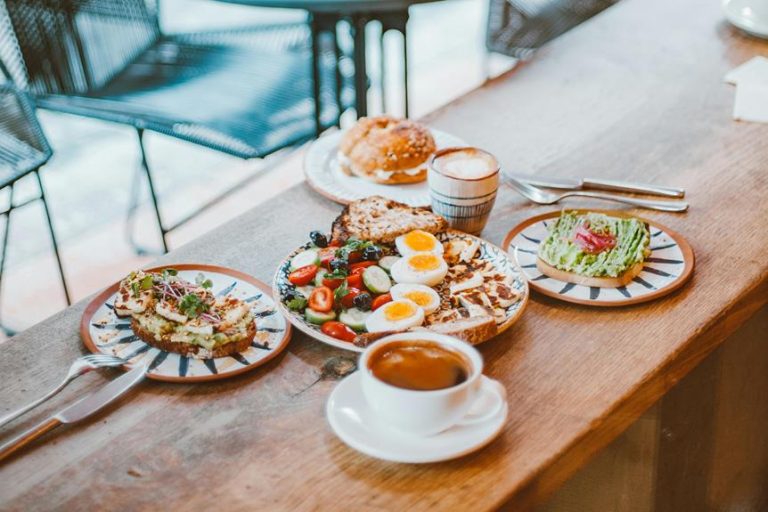25 Coffee Myths You Need to Stop Believing

You might think you know everything about coffee, but several myths could be clouding your judgment. For example, many believe that coffee dehydrates or stunts growth, but research tells a different story. As you explore these common misconceptions, you’ll uncover surprising truths that can reshape your coffee habits. Are you ready to challenge your beliefs and enhance your coffee experience?
Coffee Dehydrates You
When you sip your morning cup of joe, you might wonder if it’s actually draining your hydration.
Contrary to popular hydration myths, research shows that coffee effects aren’t as dehydrating as you think.
While caffeine has mild diuretic properties, it doesn’t greatly impact your body’s hydration levels.
In moderation, coffee can be part of a well-hydrated day, keeping you refreshed and energized.
Coffee Stunts Your Growth
Although many people believe that drinking coffee can stunt your growth, research doesn’t support this claim.
The growth effects of caffeine are minimal, especially when consumed in moderation. Most coffee misconceptions stem from outdated beliefs rather than scientific evidence.
If you enjoy your coffee, don’t worry about it hindering your height; focusing on a balanced diet will have a much greater impact.
Dark Roast Has More Caffeine
Many coffee enthusiasts believe that dark roast coffee contains more caffeine than its lighter counterparts, but this isn’t necessarily true.
In reality, the roast level misconceptions arise from the beans’ weight. Dark roasts lose more water during roasting, making them lighter.
When measured by volume, lighter roasts often have more dark roast caffeine. So, don’t be fooled by the color of your brew!
Instant Coffee Is Inferior
You might think instant coffee can’t compete with freshly brewed options, but that’s not always the case.
Quality brands have emerged that focus on preserving flavor, and your brewing techniques can enhance the experience even further.
Let’s explore how these factors challenge the notion that instant coffee is inherently inferior.
Quality Instant Coffee Brands
While instant coffee often gets a bad rap for being inferior to freshly brewed options, several quality brands have emerged that challenge this stereotype.
Popular instant brands like Mount Hagen and Waka Coffee prioritize instant coffee quality, offering rich flavors and premium beans.
You might be surprised to find that these options can deliver satisfying taste without the brewing hassle you often dread.
Brewing Techniques Matter
Although instant coffee offers convenience, the brewing techniques employed can greatly impact its quality and flavor.
To enhance your coffee experience, consider these factors:
- Best brewing methods
- Proper grind size
- Ideal water temperature
- Accurate brewing time
- Correct brew ratio
These elements influence extraction rate and flavor profile, ensuring brew consistency and maximizing coffee freshness.
Don’t underestimate the importance of technique!
Coffee Is Bad for Your Heart
Many people believe that coffee is detrimental to heart health, but recent studies suggest a more nuanced reality.
While excessive caffeine can elevate heart rate and blood pressure, moderate consumption may actually benefit your cardiovascular system.
Most research indicates that enjoying coffee in moderation can have positive caffeine effects, leading to lower risks of heart disease.
You Should Avoid Coffee During Pregnancy
Pregnancy brings about numerous lifestyle adjustments, and one common concern is whether to continue drinking coffee.
While it’s wise to monitor your intake, recent pregnancy caffeine guidelines suggest moderate consumption may be safe.
Here are some points to reflect on:
- Limit caffeine to 200 mg daily.
- High caffeine can increase miscarriage risk.
- Excessive intake may affect fetal development.
- Individual tolerance varies.
- Always consult your doctor.
Coffee Causes Insomnia
If you’re a coffee lover, you might have noticed that your favorite brew can sometimes interfere with your sleep. However, it’s not just coffee itself; caffeine sensitivity plays a key role in determining your sleep quality. Here’s a quick look at how coffee affects different individuals:
| Caffeine Sensitivity | Sleep Quality Impact | Recommendations |
|---|---|---|
| Low | Minimal | Enjoy coffee anytime |
| Moderate | Moderate | Limit intake after noon |
| High | Significant | Avoid coffee late day |
| Varies | Individual | Monitor your reaction |
| Personal Preference | Subjective | Experiment with timing |
The More Expensive the Coffee, the Better the Taste
It’s easy to assume that pricier coffee means better flavor, but that’s not always the case.
Taste is deeply personal, influenced by your preferences and experiences, making quality subjective.
Let’s explore why the price tag mightn’t reflect the true essence of your morning brew.
Price Doesn’t Equal Quality
While you might assume that a higher price tag guarantees a superior coffee experience, that assumption often misses the mark.
Coffee price doesn’t always correlate with quality perception. Consider these factors:
- Sourcing practices
- Roasting techniques
- Freshness levels
- Brewing methods
- Individual preferences
Paying more doesn’t guarantee a better cup; understanding these elements is key to enhancing your coffee journey.
Taste Is Subjective
Though many believe that pricier coffee guarantees a superior taste, the reality is much more nuanced.
Your personal preferences play an essential role in what you enjoy. Different flavor profiles can appeal to different palates, making a less expensive coffee just as satisfying.
Ultimately, the best coffee is the one that resonates with you, regardless of its price tag.
Coffee Is Addictive
Many people believe that coffee is addictive, often citing the way they crave a cup to kickstart their day.
However, caffeine dependence varies among individuals. While some might experience withdrawal symptoms, it’s not the same as addiction.
Consider these points:
- Caffeine’s effects are temporary.
- Tolerance builds over time.
- Withdrawal symptoms are mild.
- Moderation is key.
- Enjoying coffee can be a choice.
Coffee Can Cure a Hangover
If you’ve ever woken up after a night of indulgence, you might be tempted to reach for a cup of coffee in hopes of easing your hangover.
However, while coffee can temporarily relieve fatigue, it doesn’t address dehydration or other hangover symptoms.
Consider other hangover remedies alongside coffee; relying solely on its effects may leave you disappointed and still feeling unwell.
Drinking Coffee Will Raise Your Blood Pressure
While some believe that drinking coffee inevitably leads to elevated blood pressure, the reality is more nuanced.
Research suggests that moderate coffee consumption may not greatly impact your long-term blood pressure.
Consider these points about coffee health:
- Individual tolerance varies
- Short-term spikes can occur
- Caffeine effects differ by person
- Regular drinkers may build tolerance
- Lifestyle factors play an essential role
Enjoy your coffee!
Coffee Is a Diuretic
Although some people worry that coffee’s diuretic properties will lead to dehydration, the truth is more complex. Regular coffee consumption and increased caffeine tolerance can mitigate these effects. Here’s a quick look at how coffee affects hydration:
| Coffee Type | Diuretic Effect | Hydration Status |
|---|---|---|
| Espresso | Moderate | Maintained |
| Brewed Coffee | Low | Maintained |
| Decaf Coffee | Minimal | Maintained |
| Instant Coffee | Low | Maintained |
| Cold Brew | Low | Maintained |
Cold Brew Is Less Caffeinated
You might think cold brew is always less caffeinated, but that’s not quite the case.
The brewing method can lead to a higher concentration of caffeine, especially if you’re comparing it to traditional hot coffee.
Plus, serving size plays a vital role; a larger cup of cold brew can pack a bigger caffeine punch than a smaller, diluted hot brew.
Brewing Method Differences
When contemplating brewing methods, many coffee enthusiasts often overlook the fact that cold brew typically contains less caffeine than its hot counterparts.
Different extraction techniques affect the caffeine content and flavor profiles of your coffee. Here are key factors to contemplate:
- Brewing methods impact strength.
- Coffee grounds size matters.
- Water temperature influences extraction.
- Brew time alters flavor.
- Cold brew requires more grounds.
Concentration vs. Dilution
While many coffee lovers are drawn to cold brew for its smooth flavor, they might be surprised to learn that its caffeine concentration is often lower than that of hot brews.
This is due to the coffee dilution process in cold brewing, which typically uses a higher coffee-to-water ratio.
Serving Size Matters
Serving size plays an essential role in understanding why cold brew often has less caffeine than its hot counterparts.
Many factors influence this discrepancy, including:
- Brewing method
- Coffee-to-water ratio
- Extraction time
- Serving size differences
- Personal coffee consumption habits
When you adjust your serving size, you can greatly impact your caffeine intake, making it vital to know what you’re sipping.
Espresso Contains More Caffeine Than Drip Coffee
Espresso often gets a reputation for packing a stronger caffeine punch than drip coffee, but this isn’t the whole story.
In an espresso caffeine comparison, a single shot contains about 63 mg of caffeine, while an 8-ounce cup of drip coffee can have around 95 mg.
You Shouldn’t Drink Coffee on an Empty Stomach
If you’re tempted to sip your morning coffee on an empty stomach, you might want to reconsider.
The empty stomach effects can disrupt your morning rituals, leading to:
- Increased acidity and stomach discomfort
- Heightened anxiety or jitters
- Impaired nutrient absorption
- Altered cortisol levels
- Potential cravings later in the day
Enjoy your coffee with a balanced breakfast for a smoother start!
Coffee Is Linked to Cancer
While some studies suggest a potential link between coffee consumption and certain types of cancer, the relationship isn’t as straightforward as it might seem.
Many cancer studies actually indicate that coffee compounds may offer protective benefits against certain cancers.
It’s essential to take into account the complexity of these findings and not jump to conclusions based solely on initial results.
Enjoy your coffee without undue worry!
Adding Sugar to Coffee Makes It Unhealthy
When you add sugar to your coffee, it’s easy to worry about the extra calories and potential health risks.
However, sugar can also provide a quick energy boost and even enhance the flavor of your brew.
The key lies in moderation; a little sweetness can elevate your coffee experience without derailing your health goals.
Sugar’s Caloric Impact
Although many coffee enthusiasts swear by their daily dose of caffeine, adding sugar can considerably alter its health profile.
Consider these points about sugar’s caloric impact:
- Increases calorie intake
- Promotes weight gain
- Affects blood sugar levels
- Reduces coffee sweetness perception
- Sugar alternatives can help manage calories
Opting for sugar alternatives might be your best bet to enjoy that perfect cup without the extra calories.
Health Benefits of Sugar
Adding sugar to your coffee can seem harmless at first, but it’s essential to understand how it can undermine the drink’s overall health benefits. Consuming excess sugar poses health risks, and switching to sugar alternatives might be a smarter choice.
| Health Risks | Sugar Alternatives | Benefits |
|---|---|---|
| Weight gain | Stevia | Fewer calories |
| Increased diabetes | Monk fruit | Natural sweetness |
| Heart disease | Erythritol | No blood sugar spike |
Moderation Is Key
While enjoying a cup of coffee, it’s easy to overlook how much sugar you add and its potential impact on your health.
Striking a caffeine balance is essential for maintaining healthy habits. Consider these tips:
- Limit sugar to one teaspoon.
- Experiment with natural sweeteners.
- Choose high-quality coffee.
- Monitor your overall sugar intake.
- Stay mindful of portion sizes.
Coffee Is Only Good for Waking You Up
Many people believe that coffee’s only purpose is to kickstart your day, but this popular beverage offers much more than just a caffeine boost.
Beyond waking you up, coffee enhances mental clarity and improves focus, thanks to its caffeine benefits. It can elevate your mood and even foster creativity, making it a versatile companion throughout your daily routine, not just in the morning.
All Coffee Beans Are the Same
Not all coffee beans are created equal, and understanding their differences can greatly enhance your coffee experience.
With various coffee varieties available, each offers unique flavor profiles. Consider these factors:
- Origin of the beans
- Processing methods
- Roast levels
- Bean size and shape
- Flavor notes (fruity, nutty, chocolatey)
Exploring these aspects will elevate your appreciation for coffee and help you find your perfect brew.
You Must Drink Coffee Black to Enjoy Its Benefits
Although some coffee enthusiasts insist on drinking their brew black to fully reap its benefits, the reality is that you can enjoy coffee in various forms without sacrificing its health perks.
Whether you prefer lattes, cappuccinos, or flavored brews, you still receive antioxidants and other advantages.
Embrace your coffee flavor preferences—there’s more than one way to enjoy the black coffee benefits!
Coffee Can Help You Lose Weight
If you’re looking to shed a few pounds, incorporating coffee into your routine might just give you that extra edge.
Here’s how coffee can contribute to weight loss:
- Increases caloric burn
- Provides appetite suppression
- Boosts metabolism
- Enhances workout performance
- Supports fat oxidation
Coffee Is Unhealthy for Your Bones
You might’ve heard that coffee can harm your bones, but the truth is more nuanced.
Research shows that while high caffeine intake can affect calcium absorption, moderate coffee consumption may not greatly impact bone density.
It’s all about finding that balance to maintain healthy bones while enjoying your favorite brew.
Bone Density Research Findings
Research has increasingly pointed to the negative impact of coffee consumption on bone density, raising concerns for those who enjoy their daily cup.
Here are some findings to evaluate for your bone health:
- Increased caffeine absorption can lead to calcium loss.
- Higher coffee intake may decrease bone mineral density.
- Risk of fractures may rise with excessive consumption.
- Older adults may be more affected.
- Moderation is key for maintaining healthy bones.
Caffeine’s Impact on Calcium
The connection between caffeine and calcium absorption is a significant factor in understanding coffee’s impact on bone health. While coffee is a popular caffeine source, excessive intake can hinder calcium absorption, potentially affecting your bone density. Here’s a quick look at caffeine sources and their impact on calcium:
| Caffeine Source | Calcium Absorption Effect | Recommended Limit |
|---|---|---|
| Coffee | Moderate | 3-4 cups/day |
| Tea | Low | 5-6 cups/day |
| Energy Drinks | High | 1-2 cans/day |
Moderation and Healthy Bones
While enjoying a cup of coffee can be a comforting ritual, it’s essential to recognize that moderation is key, especially when it comes to maintaining healthy bones.
Excessive coffee consumption may hinder calcium absorption, potentially affecting your bone health. To keep your bones strong, consider these tips:
- Limit coffee to 2-3 cups daily
- Balance with calcium-rich foods
- Stay hydrated
- Engage in weight-bearing exercises
- Get regular check-ups
Flavored Coffee Is Just a Gimmick
Is flavored coffee really just a gimmick, or does it offer something more?
While some might dismiss flavored coffee trends as mere marketing ploys, many flavored coffee varieties enhance your experience.
They cater to diverse palates, allowing you to explore unique tastes without straying from your beloved brew.
You Can’t Drink Coffee After 3 PM
Many coffee lovers swear by a cut-off time for their caffeine consumption, often declaring that you can’t drink coffee after 3 PM.
However, the truth lies in your personal tolerance.
Consider these points about afternoon caffeine:
- Everyone processes caffeine differently.
- It can enhance productivity.
- Timing matters for sleep.
- Experiment with your limits.
- Enjoy a cup if it suits you.
Trust your body!
Decaf Coffee Contains No Caffeine
Although decaf coffee is often perceived as completely caffeine-free, it actually contains a small amount of caffeine. Understanding decaf caffeine content helps dispel common decaf misconceptions. Here’s a breakdown of caffeine levels in various coffee types:
| Coffee Type | Caffeine Content (mg) |
|---|---|
| Regular Coffee | 95-200 |
| Decaf Coffee | 2-15 |
| Espresso | 63 |
| Instant Coffee | 30-90 |
| Decaf Espresso | 0-5 |
Enjoy your decaf, but remember, it’s not entirely without caffeine!
Final Thoughts
To sum up, it’s time to debunk these coffee myths and embrace the truth about your favorite brew. Coffee doesn’t dehydrate you, stunt your growth, or harm your heart. Understanding the facts empowers you to enjoy your coffee guilt-free, whether you prefer a dark roast or a flavored blend. So, keep sipping and savoring that cup, knowing you’re making an informed choice. Let’s celebrate coffee for what it truly is—a delicious source of joy and connection!






